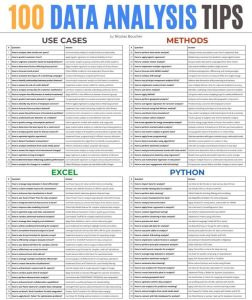Accountants who work closely with a specific business unit to form a genuine and active collaboration with both operations and management are referred to as finance business partners. Additionally, their role is to provide real-time’ support and analysis, to be a trusted consultant, and to give value to help in decision-making.
The capacity to express their message, understand their audience, and offer information in a clear and user-friendly manner is critical to their success. This combination of analytical, marketing, and communication skills is essential for effective finance business collaboration.
These finance business partners provide financial expertise and guidance. They track financial performance and provide financial information, forecasting, and analysis to help guide decision-making and set strategy.
Moreover, they play a critical role in helping the business understand its financial position and performance. Also, identify financial goals and priorities, and develop strategies to achieve these goals.
Why You Need A Finance Business Partner?
Here are the five reasons why every business needs a finance business partner.
#1: Reason: Financial analysis and decision-making
A finance business partner can help a business with financial analysis and decision-making in a number of ways:
- Providing financial data:
It can provide the business with access to financial data. Such as financial statements, budgeting, and forecasting, to help the business understand its financial position and performance.
- Analyzing financial data:
It can analyze financial data to identify trends, patterns, and opportunities for improvement. They can also provide insights and recommendations based on this analysis to help the business make informed decisions.
- Developing financial projections:
A finance business partner can develop financial projections and scenarios to help the business assess the potential impact of different decisions. This can include creating budgets, forecasting cash flow, and assessing different projects or investments’ potential return on investment.
A finance business partner can help the business assess financial risks. Such as fluctuations in currency exchange rates or changes in market conditions, and guide how to mitigate these risks.
It can provide guidance and advice to the business on financial matters, such as budgeting, forecasting, and financial planning. They can also help the business understand financial concepts and principles and how to apply them to the business’s specific needs and goals.
Bottom Line:
A finance business partner can provide an in-depth analysis of the business’s financial data, including financial statements and budgeting, to help the business make informed decisions about its financial resources. They can also help the business develop financial projections and scenarios to assess the potential impact of different decisions.
#2: Reason: Strategic planning
A finance business partner can help a business with financial strategic planning in a number of ways:
- Identifying financial goals:
It can work with the business to identify its financial goals and priorities, including goals related to cost savings, revenue generation, and growth.
- Developing a financial plan:
A finance business partner can help the business develop a comprehensive financial plan to achieve its financial goals. This can include creating budgets, forecasting cash flow, and identifying cost savings and revenue generation opportunities.
- Assessing financial performance:
A finance business partner can help the business assess its financial performance and identify areas for improvement. This can include analyzing financial data, such as financial statements and budgets, to identify trends, patterns, and opportunities for improvement.
- Setting financial targets:
A finance business partner can help the business set financial targets and develop strategies to achieve them. This can include setting targets for key financial metrics, such as profitability, cash flow, and return on investment, and developing plans to meet these targets.
Bottom Line:
It can help the business identify and prioritize its financial goals and develop a comprehensive plan to achieve them. This can include identifying opportunities for cost savings, revenue generation, and growth and developing strategies to capitalize on them.
#3: Reason Risk management
A finance business partner can help a business with financial risk management in a number of ways:
- Identifying financial risks:
It can help the business identify financial risks, such as fluctuations in currency exchange rates or changes in market conditions. These risks could impact the business’s financial performance.
A business partner can help the business assess the potential impact of financial risks on its financial performance and provide guidance on mitigating these risks.
- Developing contingency plans:
A finance business partner can help the business develop contingency plans to handle unexpected financial challenges. Such as economic downturns or sudden changes in market conditions. These plans can include strategies to manage cash flow, reduce costs, and generate additional revenue.
A business partner can guide and advise the business on financial risk management, including identifying, assessing, and mitigating financial risks. They can also help the business understand financial concepts and principles related to risk management and how to apply them to the business’s specific needs and goals.
A finance business partner can help the business monitor financial risks on an ongoing basis and provide updates on any changes that could impact the business’s financial performance. This can help the business stay informed and prepared to handle any potential financial risks that may arise.
Bottom Line
A finance business partner can help the business identify and mitigate financial risks, such as fluctuating currency exchange rates or economic downturns. They can also help the business develop contingency plans to handle unexpected financial challenges and provide guidance on how to implement these plans effectively.
#4: Reason: Performance monitoring
A finance business partner can help a business with financial performance monitoring in a number of ways:
- Providing financial data:
It can provide the business with access to financial data. Such as financial statements, budgeting, and forecasting, to help the business understand its financial position and performance.
- Analyzing financial data:
A business partner can analyze financial data to identify trends, patterns, and opportunities for improvement. They can also provide insights and recommendations based on this analysis to help the business make informed decisions.
- Setting financial targets:
A finance business partner can help the business set financial targets and develop strategies to achieve them. This can include setting targets for key financial metrics. Such as profitability, cash flow, and return on investment, and developing plans to meet these targets.
- Providing regular reports
A business partner can provide regular, in-depth reports and analyses to help the business track its financial performance and identify areas for improvement. These reports can include financial statements, budgeting, forecasting, and other financial data.
A finance business partner can provide guidance and advice to the business on financial matters. Such as budgeting, forecasting, and financial planning. They can also help the business understand financial concepts and principles and how to apply them to the business’s specific needs and goals.
Bottom Line
A finance business partner can provide regular, detailed reports and analyses to help the business track its financial performance and identify areas for improvement. They can help the business set financial targets and develop strategies for them. Furthermore, provide guidance to monitor progress toward these goals. Overall, a finance business partner can help a business monitor its financial performance by providing access to financial data, analyzing this data, setting financial targets, and providing regular reports and guidance to help the business make informed decisions.
#5: Reason: Collaboration
A finance business partner can help a business by providing financial guidance in a number of ways:
A business partner brings financial expertise to the table, which can be valuable in decision-making and strategy development. They can help the business understand financial statements, budgeting, forecasting, and other financial matters in greater detail and provide guidance on how to maximize the company’s financial resources.
A finance business partner can provide guidance and advice to the business on financial matters. Such as budgeting, forecasting, and financial planning. They can also help the business understand financial concepts and principles and how to apply them to the business’s specific needs and goals.
A business partner can provide support to the business as it navigates financial challenges and opportunities. This can include providing guidance on how to handle financial risks. Such as fluctuating currency exchange rates or economic downturns and helping the business develop contingency plans.
He can help educate the business’s management and employees on financial matters, including financial concepts, principles, and best practices. This can help the business make more informed and effective decisions that align with its financial goals.
He can provide the business with access to financial resources. Such as financial data, tools, and software, to help it manage its financial affairs more effectively. This can include access to financial modeling software, budgeting tools, and other resources to help the business better understand and manage its financial position.
Bottom Line
In conclusion, a finance business partner can provide guidance and advice to the business on financial matters. Such as budgeting, forecasting, and financial planning. They can also help the business understand financial concepts and principles and how to apply them to the business’s specific needs and goals.
The Priority Competencies Required in A Finance Business Partner
- Commercial and organizational acumen
- Communicating to influence
- Relationship to stakeholder management
- Business insight and decision support
- Negotiation mastery
- Strategic thinking
- Global perspective and adaptability
- Appreciation for technology
#1: Commercial and Organizational Acumen of A Finance Business Partner
It refers to a finance business partner’s understanding of the business’s financial position, performance, and objectives. As well as its industry and competitive landscape. Also, their ability to apply this understanding to identify and prioritize financial goals and develop strategies to achieve them.
Having strong commercial and organizational acumen is critical for a partner. Because it enables them to provide the business with valuable insights and recommendations based on a deep understanding of the business’s financial needs and goals. It also allows them to effectively collaborate with other departments and stakeholders within the business to ensure that financial considerations are taken into account in all decision-making.
In conclusion, commercial and organizational acumen is a key competency for a finance business partner. Since it enables them to effectively support the business in achieving its financial goals and making informed decisions about its financial resources.
#2: Communicating to Influence
It refers to a finance business partner’s ability to effectively communicate financial concepts and principles to the business. Also, to persuade others to take action based on this information.
Strong communication skills are critical for a finance business partner. That is because they need to be able to explain complex financial concepts and principles clearly and concisely to a diverse audience, including business managers, employees, and stakeholders. They should also effectively communicate their insights and recommendations to the business and persuade others to take action.
In conclusion, the ability to communicate to influence is an important competency for a finance business partner. That ability enables them to effectively support the business in achieving its financial goals and making informed decisions.
#3: Relationship to Stakeholder Management of The Finance Business Partner
It refers to a finance business partner’s ability to work effectively with other departments and stakeholders within the business to ensure that financial considerations are taken into account in all decision-making.
A finance business partner needs to be able to effectively collaborate with other departments and stakeholders within the business. The goal is to ensure that financial considerations are taken into account in all decision-making. This requires strong relationship management skills, including listening to other’s perspectives, communicating effectively, and working towards shared goals.
In conclusion, relationship to stakeholder management is an important competency for a finance business partner. Because it enables them to effectively support the business in achieving its financial goals and making informed decisions about its financial resources. It also helps the finance business partner ensure that financial considerations are taken into account in all decision-making, which is critical for the long-term financial success of the business.
#4: Business Insight and Decision
This support refers to a finance business partner’s ability to provide the business with insights and recommendations based on financial analysis and data and support the business in making informed decisions about its financial resources.
To provide effective business insight and decision support, a finance business partner needs to have a deep understanding of financial principles and practices. And be able to analyze financial data to identify trends, patterns, and opportunities for improvement. They should also be able to communicate their insights and recommendations to the business in a clear and concise manner and provide guidance and support to the business as it makes financial decisions.
In conclusion, business insight and decision support are important competencies for a finance business partner. As it enables them to effectively support the business in achieving its financial goals and making informed decisions about its financial resources. It also helps the finance business partner ensure that the business is making data-driven decisions that are based on a deep understanding of its financial position and performance.
#5: Negotiation Mastery
It refers to a finance business partner’s ability to effectively negotiate financial agreements and contracts on behalf of the business.
To demonstrate negotiation mastery, a finance business partner should have a deep understanding of financial principles and practices. That means effectively communicating the business’s financial needs and goals to the other party. Also, they should be able to analyze financial data and identify opportunities for cost savings or revenue generation, and use this information to negotiate favorable terms for the business.
In conclusion, negotiation mastery is an important competency for a finance business partner. This is because it enables them to effectively support the business in achieving its financial goals by negotiating financial agreements and contracts that are favorable to the business. It also helps the finance business partner ensure that the business is making data-driven decisions that are based on a deep understanding of its financial position and performance.
#6: The Strategic Thinking of Finance Business Partner
This refers to a finance business partner’s ability to think strategically and help the business identify and prioritize its financial goals and develop a comprehensive plan to achieve them.
To demonstrate strategic thinking, a finance business partner should have a deep understanding of financial principles and practices and be able to analyze financial data to identify trends, patterns, and opportunities for improvement. Also, to think critically and creatively about the business’s financial needs and goals and develop strategies to achieve them.
In conclusion, strategic thinking is an important competency for a finance business partner. As it enables them to effectively support the business in achieving its financial goals by developing comprehensive plans that are based on a deep understanding of the business’s financial position and performance. It also helps the finance business partner identify opportunities for cost savings, revenue generation, and growth and develop strategies to capitalize on them.
#7: Global perspective and Adaptability
and adaptability refers to a finance business partner’s ability to think and operate globally and adapt to changing financial conditions and business environments.
To demonstrate global perspective and adaptability, a finance business partner should deeply understand financial principles and practices. Furthermore, to be able to analyze financial data to identify trends, patterns, and opportunities for improvement. They should also be able to think critically and creatively about the business’s financial needs and goals and develop strategies to achieve them on a global scale. They should also be able to adapt to changing financial conditions and business environments and develop contingency plans to handle unexpected financial challenges.
In conclusion, global perspective and adaptability is an important competency for a finance business partner, as it enables them to effectively support the business in achieving its financial goals in a global context and adapt to changing financial conditions and business environments. It also helps the finance business partner identify opportunities for cost savings, revenue generation, and growth globally and develop strategies to capitalize on them.
#8: Appreciation for the Technology of A Finance Business Partner
It refers to a finance business partner’s understanding of and ability to use financial technology tools and software. Such as financial modeling software, budgeting tools, and other resources to help the business manage its financial affairs more effectively.
To demonstrate appreciation for technology, a finance business partner should have a deep understanding of financial principles and practices. Also, to be able to use financial technology tools and software to analyze financial data, develop financial projections, and create financial reports. They should also be able to effectively communicate their insights and recommendations to the business using these tools and resources.
In conclusion, appreciation for technology is an important competency for a finance business partner. it enables them to effectively support the business in achieving its financial goals by using financial technology tools and software to analyze financial data and make informed decisions about its financial resources. It also helps the finance business partner stay up-to-date with the latest financial technology tools and resources and use these tools to help the business manage its financial affairs more effectively.
The Final Verdict – Finance Business Partner is A Key Asset for Your Firm
Based on the firm or department and its goals, the procedure is flexible and subject to interpretation. It might be a short partnership-, mid-, or long-term, everlasting, or when a choice needs to be made. To establish active collaborations that offer immediate support and analysis, finance business partners are frequently integrated into certain business units. They become dependable consultants that concentrate on enhancing organizations.
If you are interested in learning more finance knowledge and insights on similar topics, you can take my course.






